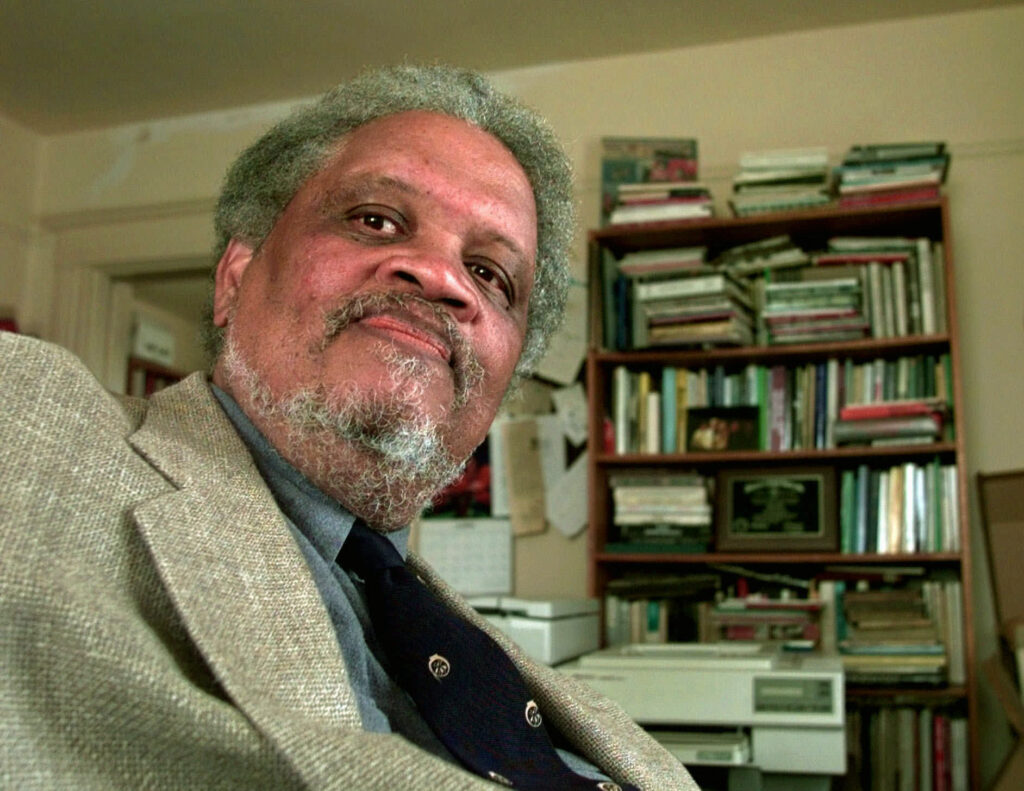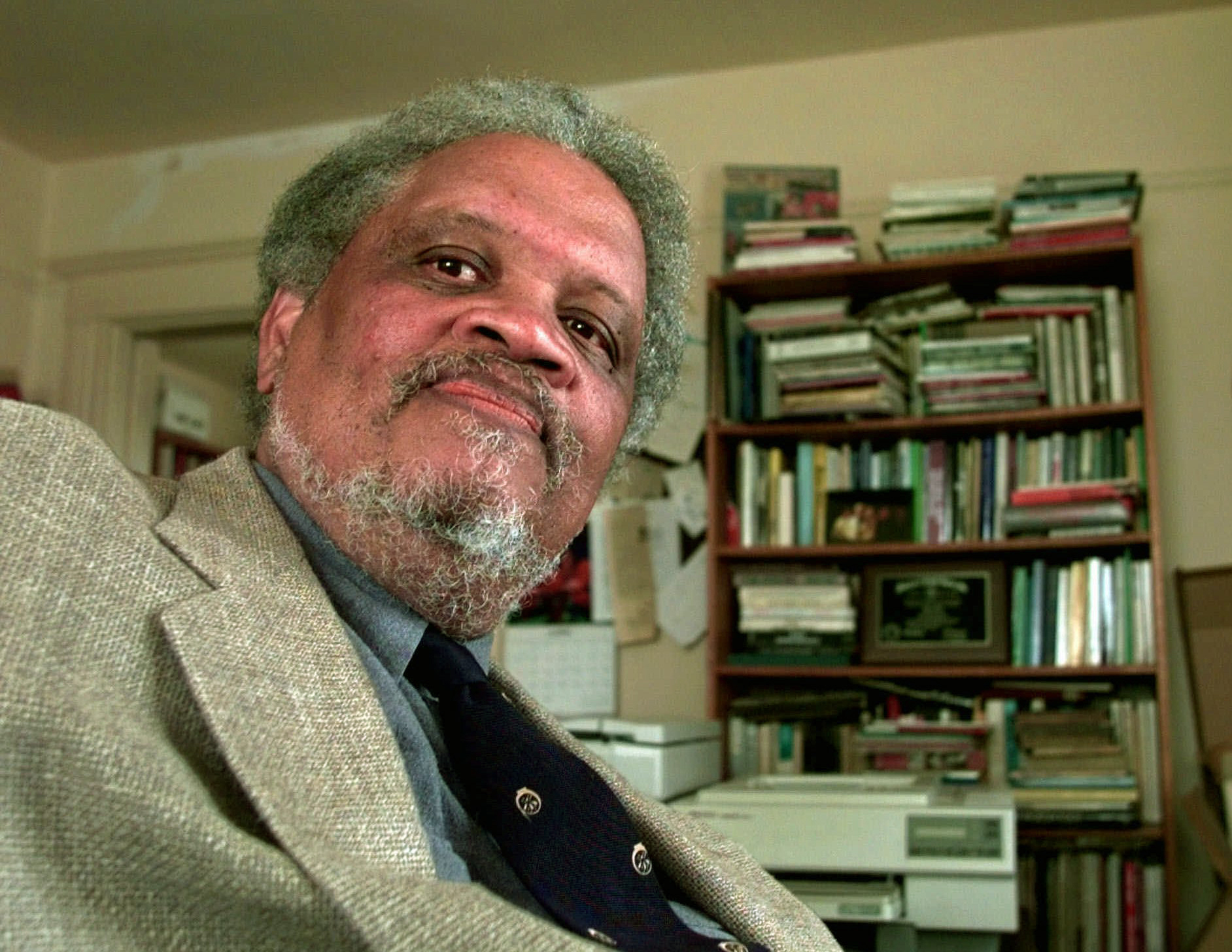“Song of the South” might have won Disney two Academy Awards, but it won’t be found on Disney+.
Just watching the trailer of the 1946 film, which combined live-action and animated sequences featuring happy-looking Black sharecroppers on a Southern plantation during Reconstruction, can be difficult to watch in a post-George Floyd era.
But Oakland playwright, poet, novelist and musician Ishmael Reed recalls seeing it as pure entertainment as a boy.
“I wasn’t sophisticated enough to detect its demeaning of Black Americans,” the 87-year-old told the Chronicle via email. “This is the power of film.”

Perhaps unsurprisingly, the story behind the movie is just as racist — a truth that’s the subject of Reed’s latest play, “The Amanuensis,” presented in a self-produced staged reading Thursday-Sunday, Oct. 16-19, at Theater 33 in San Francisco’s Union Square.
The prolific Reed, also a publisher and retired university professor, combines a farsighted gaze with a fondness for directing it under America’s underbelly. Works such as his 1972 novel “Mumbo Jumbo,” which opens with a so-called virus electrifying the nation’s Blacks, bespeak a jazzman’s ear and a polyglot tongue:
The Age of Harding pulls up, the strict upper-lip chrome. The somber, swallow-tailed body, the formal top-hatted hood, the overall stay-put exterior but inside the tell-tale poker cards, the expensive bootlegged bottle of liquor, and in the back seat the whiff of scandal.
More recently, he gained a new generation’s attention when he criticized the hit Broadway musical “Hamilton” before it was cool to do so.
He first took aim with the 2015 essay “Hamilton: the Musical: Black Actors Dress Up like Slave Traders … and It’s Not Halloween.” He doubled down the following year with “Hamilton and the Negro Whisperers: Miranda’s Consumer Fraud,” and finally a 2019 play, “The Haunting of Lin-Manuel Miranda.”
“The Amanuensis,” directed by Reed’s wife and longtime collaborator Carla Blank, delves into how white writer Joel Chandler Harris (John Bramhall) didn’t himself devise the stories on which “Song of the South” was based but took dictation from formerly enslaved people: Uncle George Terrell (Raymond Nat Turner), Old Harbert (Alex Maynard) and Aunt Crissy (Veneita Porter).
As an “amanuensis,” or mere secretary, he (and Disney) profited handsomely from the film, while the original storytellers got nothing. In Reed’s play, the film’s cartoon characters Br’er Rabbit (Jahn Overstreet) and Sister Fox (Lady H aka Haninah Abdullah) help the storytellers seek retribution.
If “Song of the South” now seems beyond the pale, Reed hears plenty of contemporary echoes.
“The use of Black characters by white script writers to mouth their prejudices about Blacks continues to this day. Check out Starz, which I call the Black pathology network,” he said, singling out the series “Hightown.”
In a world of sacred cows, Reed is a cow tipper, which has earned him plenty of enemies. Among the folkloric stories he mentions in “The Amanuensis” is that of the possum, who lies in wait — a character with whom Reed identifies.
“Countless times, my career has been left for dead, only to bounce back,” he said. “Some critics still maintain that I peaked in the 1970s.”
To counter them, Reed’s adopted what he calls a “global strategy” of studying other languages and cultures — Japanese, Yoruba, Hindi — to broaden his audience base.
But in person, Reed cuts a low-key figure, greeting friends and strangers alike with fist bumps. A newshound, he kept an MSNBC interview with Speaker Emerita Nancy Pelosi on Prop. 50 on his phone until rehearsal started at Theater 33.
As the reading began, he stroked his chin. He knit and reknit his thumbs, frequently nodding and chuckling along to his own lines. At one point, he beamed with a “Yep, I wrote that” close-lipped smile.
He’s also still working on his novel series “The Terribles,” a four-decade project. Meanwhile, his new poem in album form, “The Jazz Martyrs,” is available to stream on Apple Music.
Clearly, retirement isn’t on his mind.
“(A)s long as they use the military against apartment buildings and march (B)lack and brown kids out naked in the streets and see our cities as military training grounds, I think I’ll keep writing,” he said, referring to a U.S. Immigration and Customs Enforcement raid in Chicago earlier this month. “At least when members of the Confederate Army marched Black kids back to slavery, after the invasion of Pennsylvania, the kids were fully clothed.”






